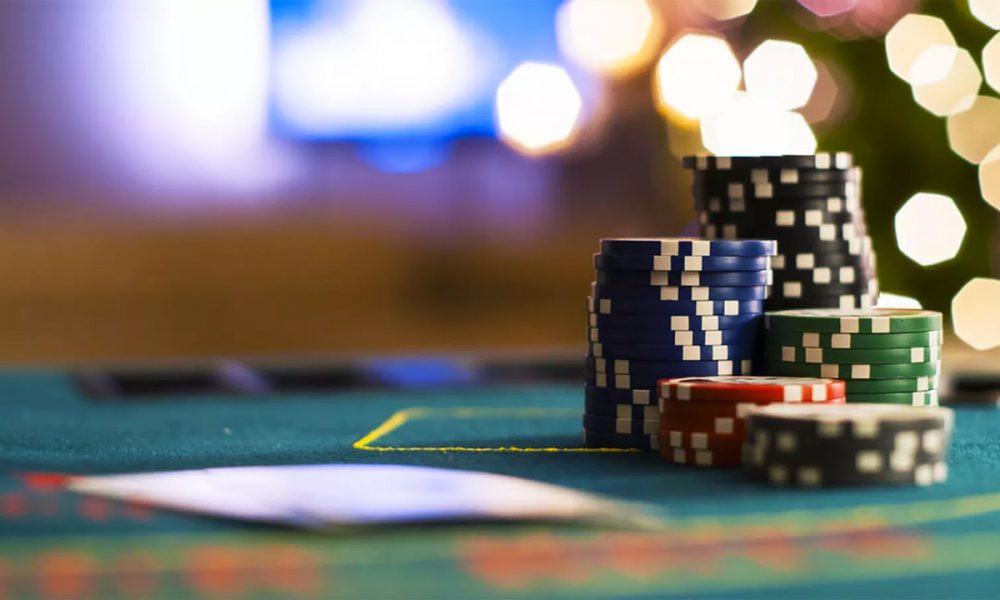

When it comes to the list of the best card games that are immensely popular among the masses, poker occupies the first spot. It has millions of fans around the globe that love to indulge in the game whenever they get a chance. Besides being a fun and addictive card game, indulging in poker has numerous other benefits.
According to Forbes, playing poker can significantly improve players’ financial decision-making skills. Besides this, poker also facilitates sharpening the mathematical skills of players and allows them to stay focused, disciplined and patient.
A player can implement numerous poker tips and tricks to have the upper hand over opponents in any poker game. The bluff is one of the most useful tricks that every good poker player should know how to implement to improve their poker hands. This article will cover what a bluff is, the numerous types of bluffs, and how and when players should bluff.
What is a Bluff in Poker?
In poker, a bluff is when the player makes a bet or raises to make opponents fold a better hand. Executing a bluff properly facilitates players to win the pot or the wagered money by default. Even though players can make a bluff whenever they want, experts always bluff at the perfect time, i.e., when they suspect their opponents will fold. When players bet for value, they hope their opponents have a worse hand. In contrast, when poker players bet as a bluff, they hope their opponents fold a better hand. The main idea behind bluffing is to create an opportunity for making a profitable bet.
There are primarily four types of bluffs in Poker:
- Opportunistic Bluff – Opportunistic bluff is where no player involved in the hand exhibits any interest in the wager money. Players use this variant of the bluff to showcase a profit when they suspect that others do not have a strong hand.
- Continuation Bet Bluff – The kind of bluff where the players have the initiative and depend on their opponents to not connect with the board is called a continuation bet bluff.
- Zero Equity Bluff – Also known as the stone-cold bluff, zero equity bluffs are where the players have little or no chance of having a good hand. Hence, the player relies completely on the fold equity to showcase profits.
- Semi-Bluff – Semi-Bluff is the kind of bluff where players’ hand is weak or completely without the showdown value. In semi-bluffs, players have a good chance of making a strong hand. Two prominent examples of semi-bluffs include flush and straight draws.
When Should A Player Bluff in Poker?
Knowing when to bluff is one of the most crucial aspects that determine whether the match will have a favorable outcome for the player or not. One of the best times for a player to bluff is when they think they have a chance to get their opponents to fold. However, a player needs to garner ample experience before figuring out the right time and spot for bluffing their opponents in poker. Furthermore, if the player does not know how to bluff, implementing a rightly-timed bluff will also be of no use to them. By considering the following factors, players can have a better idea about when they should bluff or whether they should bluff or not:
- Opponents – Players should know who they are up against to determine their plan for the hand. Assessing opponents is a great way to see through them and their tactics. Almost every poker player exhibits signs and tendencies that create opportunities for bluffing. Therefore, players should notice their opponents’ body language, gameplay, and behavioral patterns to determine the right time to bluff.
- Size of the Bet – Knowing when to bet as a bluff can also be determined by the size of the bet. Players should know what bet size would prove to be the most profitable. For instance, a small-sized bet does not need as many folds as a bigger one to ensure a profit.
- Required Number of Bets – Depending on their opponents’ strategies and tactics, a single bet may not be powerful enough to convince them to fold. Hence, to determine the right timing for bluffing their opponents, players should first determine how many bets they should make to make their opponents fold.
How Often Should Players Bluff in Poker?
Bluffing is a risky tactic that can pay great dividends or cost the players enormous amounts. Most novice poker players think that bluffing frequently is the key to winning a poker game. However, the best path to take when bluffing is to be highly selective. Coming to how often a player should bluff, it depends entirely on the game’s ongoing scenario. To elaborate, players need to assess every other player’s situation before deciding whether they should bluff or not. There is no optimal frequency set for bluffing since bluffing successfully depends entirely on the game’s present situation.
Poker is a strategic game where players need to use their intelligence and math skills to overpower their opponents. Even though tricks like bluffing help players in numerous scenarios, it is not the most important part of the game. If a situation requires bluffing, players should go for it. However, relying solely on bluffs may prove to be an unwise decision in the majority of the situations. Furthermore, players should know when to bluff their opponents to reap maximum benefits.



































You must be logged in to post a comment Login